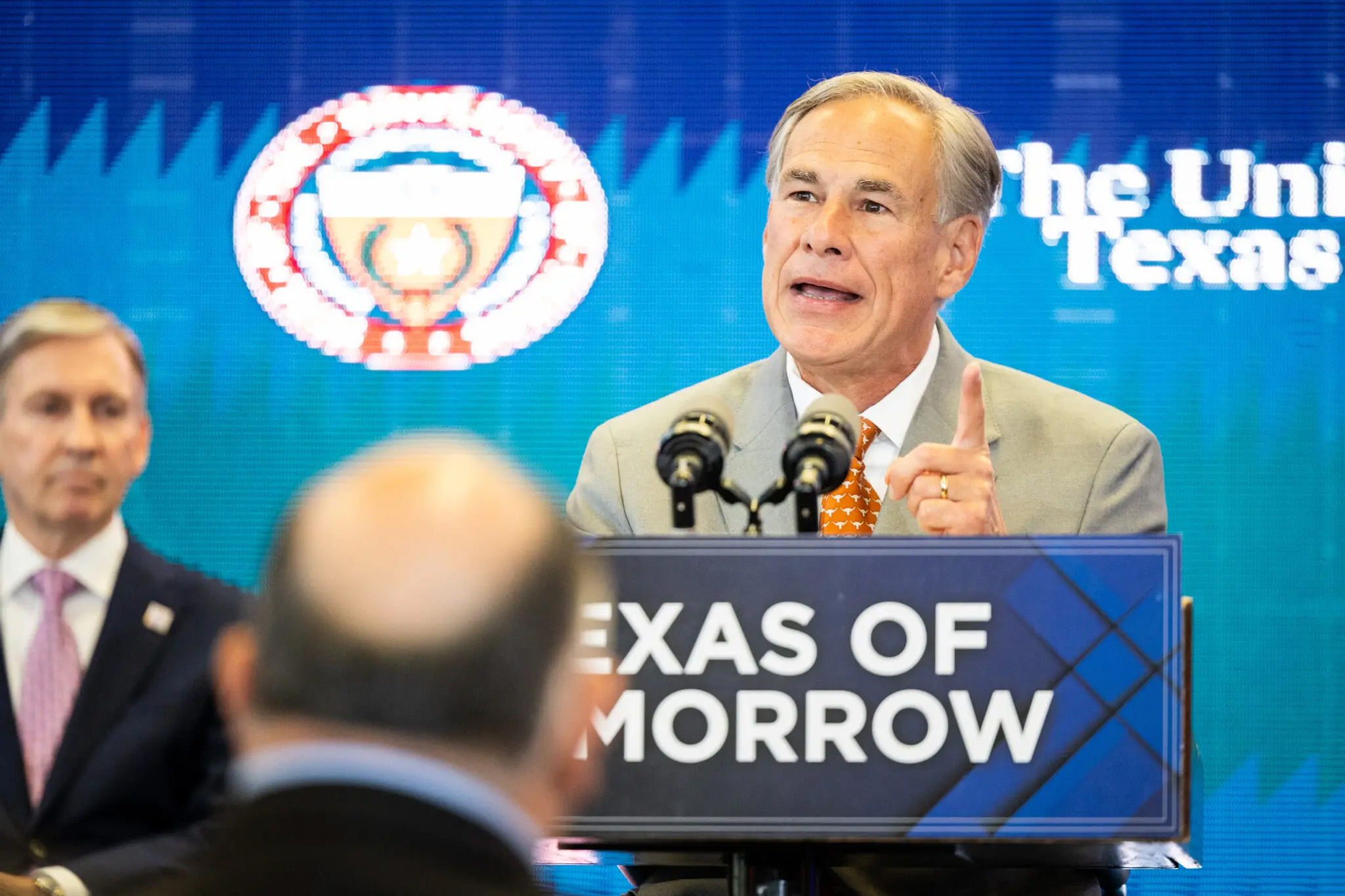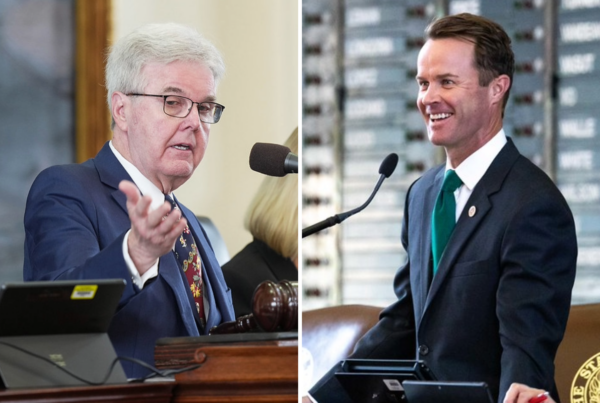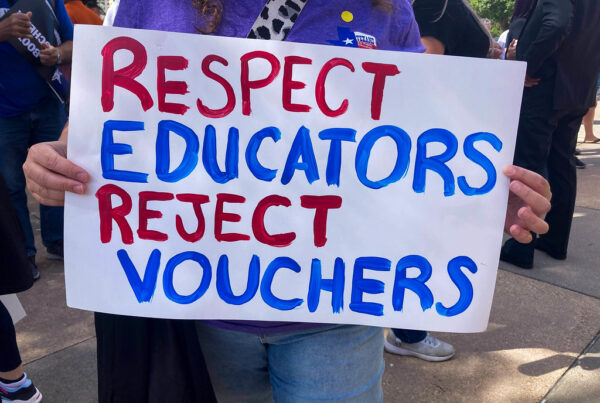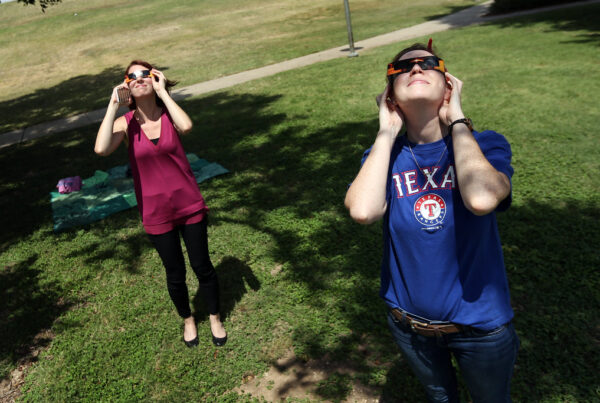When Sasha Alvarado’s daughter, who has autism, started kindergarten in Dallas a few years back, she began falling behind.
“I basically asked for more support for her to attend general education,” Alvarado said. “And I was told up there if I wanted more support … she needed to go into more of a (special education) classroom.”
The family has since moved to Houston. Her daughter is now 9, and she’s spent most of her time in a self-contained special ed class. According to Alvarado, her daughter is able to access the general curriculum with the right accommodations. In other words, if her daughter has enough help, she’s capable of learning what most kids learn.
“I think everything I’ve asked for, I get the feeling it seems unreasonable,” Alvarado said.
There’s a lot that Alvarado wants to see improve at the local level in Dallas and Houston — more transparency, better communication, reliable data on student performance. It’s a wishlist shared by many parents of students who receive special education services in Texas.
When it comes to the state government’s role in special education, Alvardo was “shocked” when she learned how the funding system works.
Right now, the state gives school districts more money for special ed students who are further removed from the general population. A student who needs a full-time aide to participate in general classes gets less money from the state than a student who spends most of their time in a self-contained class with other special ed students.
“I feel like, fundamentally, this will not get better until that conflict of interest is taken care of,” Alvarado said. “There’s no incentive to keep these kids in general education if you get less funding.”
Lawmakers had a game plan to fix this system when they met in Austin in January. A month earlier, the Texas Commission on Special Education Funding found that the state was shortchanging districts across the state to the tune of about $2 billion per year.
The bipartisan group unanimously recommended allocating money based on what services students need, rather than where they are placed. The idea: schools will be more incentivized to keep special education students in the general environment. That topline recommendation was followed by 13 more, including a unanimous approval to reimburse the costs of evaluations, which determine if a student qualifies for special education.
Foreshadowing the general legislative session, the commission also narrowly recommended “education savings accounts,” a type of school voucher, for disabled students. Four members voted in favor of the voucher recommendation and three, including Texas House Republican Dan Huberty, voted against.
In a letter attached to the report, Huberty, whose final term expired in January, argued “now is the time to have an honest debate about the State’s obligations to Special Education Students, without introducing a policy debate on (education savings accounts) that could prove to be detrimental to the passage of this critical legislation.”
All of the recommendations fell flat earlier this year as lawmakers in the House and Senate battled over school vouchers.
Jolene Foster, advocacy director for the Coalition of Texans with Disabilities, said she was “deeply disappointed” that funding for public schools, including special education, was “held hostage.”
“We were ready to push this long overdue reform of special education funding, which hasn’t been touched in over 30 years,” Foster said. “But, again, I think there was so much emphasis on — given that it is a priority of the governor and the lieutenant governor — so much emphasis on the idea of creating education savings accounts or vouchers that the priority got buried.”
For now, the Texas Senate is moving ahead with two proposals — one would increase funding for public schools, while the other would create a private school voucher program that prioritizes students who come from low-income families or who have disabilities.
It’s unclear if Gov. Greg Abbott will even sign a public school funding bill into law. The agenda for his special session only refers to one educational priority — private school vouchers — and a spokesperson did not respond to a question about whether lawmakers can also address the public system.
Republican state Sen. Brandon Creighton of Conroe authored both bills. While his proposed voucher program includes priority categories, it would still allow wealthy families to access public dollars for private schooling.
“Instead of being exclusive to those families, it gives them — each of them — an opportunity on behalf of their child to find the education outcomes that they deserve,” he told the Senate Education Committee just before the committee members greenlit the proposal 10-3.
Andrea Chevalier is director of governmental relations with the Texas Council of Administrators of Special Education, which represents special ed directors for public districts and charter systems across the state.
“They’re pissed off because we keep getting pushed aside, and our kids continue to not be a priority,” Chevalier said. “And it’s frustrating because it’s not just special education. It’s all students. And students served through special education are general education students first. Every single student in a public school in Texas is being harmed by political games.”
The voucher bill would require applicants to be notified that “a private school is not subject to federal and state laws regarding the provision of educational services to a child with a disability in the same manner as a public school.” Neither of the senate proposals includes any changes to the state’s special education funding model for public schools.














